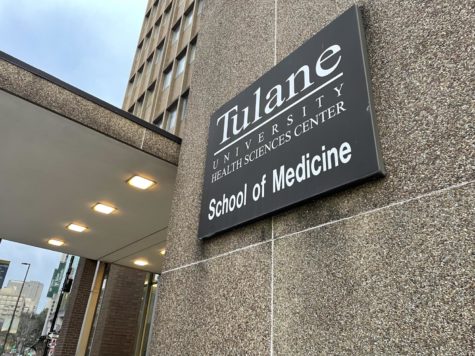
On May 1, Tulane University, as part of the Center for Clinical and Translational Studies, received a National Institutes of Health grant worth $82 million to address disparities in health across the Deep South.
The CCTS is a partnership of 11 universities, academic health centers and research institutes across Louisiana, Alabama and Mississippi led by the University of Alabama, Birmingham and Tulane. The CCTS aims to bring together different institutions and use their strengths to complement each other in the fight against health disparities throughout the southern United States.
It is no secret that the Deep South’s health is worse than the rest of the nation. “This part of the country… has a huge burden of disease,” Patrice Delafontaine, executive dean of Tulane University Medical School and co-director of CCTS, said. “Our stroke rate is higher, our rate of chronic kidney disease, our rate of cardiovascular disease, our rates of cancer.”
Mississippi, Alabama and Louisiana have some of the lowest life expectancies in the United States, along with the highest rates of diabetes, hypertension, obesity and infant mortality. According to the Centers for Disease Control and Prevention, a person in Hawaii will live nine years longer, on average, than their counterpart in Mississippi.
The grant focuses on improving research infrastructure, educating and training staff interested in researching health disparities and funding Tulane Medical School’s clinical trial unit.
“The vision is to use the network so these 11 institutions use their collaborative strengths to accelerate the discovery, dissemination and implementation of new medical findings… to reduce the burden of chronic disease and advance health equity in the Deep South and beyond,” Delafontaine said.
The CCTS will also facilitate greater collaboration between partner institutions. “I think the thing that is the most exciting is we have 11 institutions, all of which have major areas of strength, and we can now strategize together and try to address those problems using these complementary strengths, which was not possible before.”
One of the most consequential results of the CCTS so far has been a data-sharing agreement between UAB and Tulane. The agreement allows a Tulane researcher, after going through regulatory checks, to access data about populations in UAB’s electronic medical records. It would even be possible for a clinical trial to be conducted at both UAB and Tulane, with the records easily accessible to researchers at both institutions.
The NIH grant will provide funding to the CCTS over the next seven years to support translational research, community tie building and improve health outcomes.


